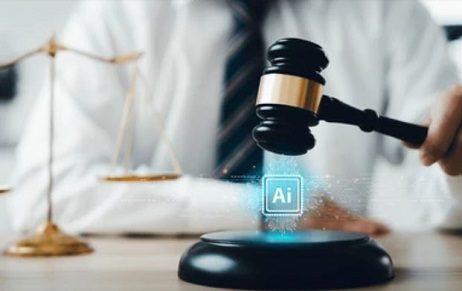Any successful café, restaurant, or retail establishment's environment is greatly influenced by its music. It…
Who Can Grant A Copyright License In Respect Of Creative Works: A Conundrum Unresolved
Introduction:

Background:
M/s Novex Communications Pvt. Ltd. (“Novex”), a content distribution company specializing in film music, filed two lawsuits against DXC Technology Pvt. Ltd. (“DCX”). Novex claimed that its business involved the acquisition of copyright(s) in the sound recording of various film songs, to which it claimed to have a right as an assignee, licensee, or authorized agent of various copyright holders, and that it had entered into various agreements with owners of sound recordings (including in respect of on-ground public performances thereof) to acquire such rights. Novex claimed exclusive ownership rights over such sound recordings as a result of the agreement and claimed that the use of certain of its music at DXC-organized events constituted a blatant copyright violation.
The issue in Law:
The main question before the Hon’ble High Court, in this case, was whether Novex because it was not a copyright society as defined by Section 33 of the Act, had any legal authority to issue or grant a license under the Act.
Analysis:
Novex’s claim was based principally on Section 18(2) of the Copyright Act, 1957 (“Act”), which states that an assignee becomes the legitimate owner of copyright by virtue of an assignment of copyright. Novex referenced the assignment agreements that were executed in their favor in this regard. Novex further claimed that as the legal owner of the copyright, it has the authority to issue licenses to any business under Section 30 of the Act.
DCX, on the other hand, relied on Section 33 of the Act to support its counter-argument. It was argued that a cursory reading of the relevant Section revealed that the legislative intent was to prohibit businesses from issuing licenses, because the only body authorized to do so was a “copyright society duly registered under this Act”, as stated in the second proviso of the said Section. Furthermore, DCX stated that Novex was guilty of charging unreasonable fees to organizations that obtained licenses from them under the pretext of issuing licenses. According to Novex, “a combined reading of Sections 18, 30 & 33 of the Act makes it clear that the owner of the copyright is entitled to independently issue licenses and collect royalties legislature did not mandate that the copyright owner should necessarily issue a license and collect the fees only through a copyright society“
The case of Leopold Cafe & Stores v. Novex Communications (P) Ltd [2014] is which directly addresses the core issue of Section 33’s construction in relation to Sections 18 and 30. The court’s first and most important point is that these parts must be understood harmoniously. One provision’s execution must not make the others otiose or redundant. As a result, Section 33 of the Act cannot be claimed to preclude the operation of Sections 18 and 30. The above-mentioned decision distinguished between the “business of issuing or awarding licenses” and the assignment/licensing contemplated under Sections 18 and 30 of the Act. The judgment construed Section 33 of the Act to imply “carrying on the business of issuing or granting licenses in its own name,” which was a fresh interpretation of the language. It interprets that Section 33 of the Act prohibits the business of providing licenses in one’s own name, according to the verdict. It does not prevent the granting of licenses by an owner/authorized agent in the process of carrying on a different activity, such as film production, because Section 30 of the Act allows it. The above-mentioned decision sheds light on the interpretation of Section 33 of the Act. The notion of harmonious design has the capacity to eliminate all ambiguity that the Amendments have created. The ruling, however, states that entities such as Novex were not authorized to issue licenses or collect license fees. Because affidavits given by significant entertainment businesses such as Shemaroo and YRF indicated that Novex was their licensed representative in its licensing activities, this negative finding may be unjustified. Because Novex’s operation was covered by Section 30, it’s possible that the judgment that Novex’s business was barred by Section 33 of the Act isn’t legally solid. These decisions have made it difficult and unclear to determine whether the operations of companies like Novex fall under Section 30 or Section 18.
Held:
The single judge of the Hon’ble Madras High Court ruled in favor of DCX, ruling that Novex was effectively precluded from issuing or granting any permits under Section 33 of the Act. The Hon’ble Court specifically stated that if a corporation (such as Novex) was primarily engaged in the business of giving licenses for copyrighted works, the second proviso of Section 33 applied to such works whether they were incorporated into a cinematograph film or a sound recording. The Court determined that Novex’s whole cause of action was flawed, and DCX was awarded hefty costs as a result.
Concluding Remarks:
Producing and promoting original creative content costs a lot of money for production businesses. Due to their specialty in such jobs, third-party licensing and collection businesses take on the massive burden of guaranteeing that the copyright of the stated content is not violated in a vast country like India. The rights and interests of third-party licensing and collecting businesses that grant/issue licenses in respect of creative works are still subject to a legal vacuum. The 2012 Amendment could well have cleared the legal situation. Instead, by adding a new second proviso to Section 33’s sub-section (1), it has simply added to the ambiguity. The business of issuing/granting licenses in respect of literary, dramatic, musical, and artistic works incorporated in film or sound recording shall be conducted solely through a copyright society, according to this inserted proviso. Legally, this puts third-party licensing and collection companies like Novex on shaky ground. As previously stated, judicial decisions on this part of the Amendments have been sparse and conflicting, making interpretation of these clauses extremely difficult.
Author: Anuja Saraswat – a student of B.A.LL.B (Hons.) from NMIMS Kirit P. Mehta School of Law (Mumbai), in case of any queries please contact/write back to us via email vidushi@khuranaandkhurana.com or contact us at Khurana & Khurana, Advocates and IP Attorney.



